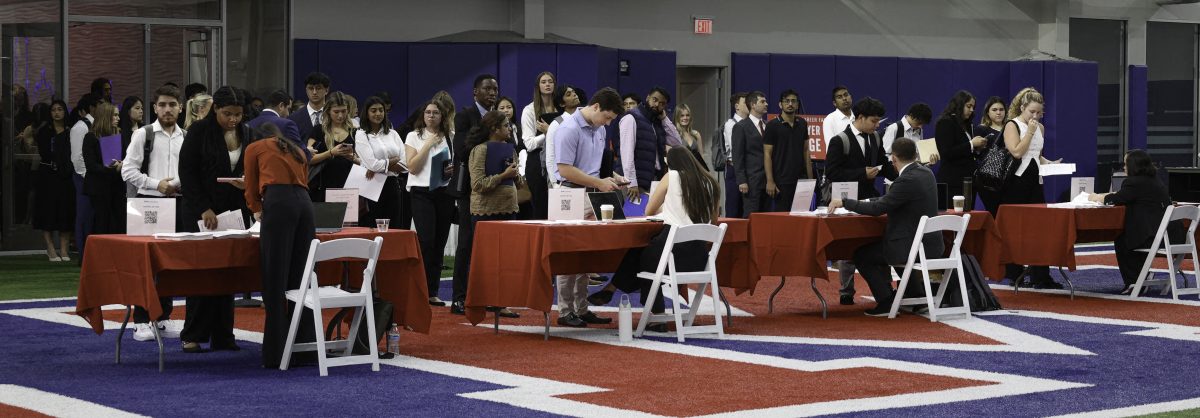Graduating seniors need to be aware of their social media presence as they apply for jobs.
For Gen Z especially, social media has evolved and changed over the course of the past two decades and they may be wondering: how many social platforms are potential employers looking at? While MySpace, Facebook and Tumblr were the primary social media young adults used during the early 2000’s, now there are ever evolving social media platforms to choose from, which are great for connection but are potentially a pitfall for users, as well.
Garland Police Department recruiter, officer Mykeal Hurse, explained that in today’s job market, social media is more important than ever. For prospective police officers, social media is a key factor in the hiring process.
“It’s huge, and more so now than beforehand, because everybody has some kind of social media, Facebook or Instagram as part of your background process of being hired,” Hurse said.“Here, we ask for the passwords to all of those. Not only are we looking at what you’re posting, and the groups you’re a part of, we’re going to read your messages because you gave us permission to do that by signing our background investigation.”
Some argue that the start of social networking began with morse code, others point to the development of Facebook. From cooking tutorials to cats playing the piano, anything can be found on social media, including personal posts. This gives hiring managers new ways to recruit and screen potential employees, according to Express Employment Professionals.
Express Employment Professionals, a staffing firm founded in 1983, helps job seekers find a position that fits with their skills and prior work experience. The firm hired The Harris Poll to gauge social media’s role in the hiring process. The poll found that 71% of decision makers in the U.S. say using social media profiles is an effective way to screen applicants.
But some SMU students, like senior Claire McCarter, who just got her first post-grad job with OnSemiconductors, steered clear of social media sites, fearing its impact in the hiring process.
“I feel like part of it is I don’t care for social media, but also it’s much easier to sort of ensure that it’s not going to negatively affect me.” McCarter said. “I knew that I was not going to keep that up, and I didn’t enjoy doing that kind of stuff so my rationale was, ‘If they don’t see anything they cannot look on me poorly.’”
SMU senior, creative advertising major and graphic design minor Helena Hargraves, prioritized her LinkedIn to show employers her unique accomplishments and career highlights. While applying for jobs in advertising, Hargraves said some asked for her social media accounts and some did not, but they all focused mainly on her LinkedIn and portfolio.
“All my other accounts are private, like Instagram and stuff, so I wasn’t super concerned,” Hargreaves said. “It was mostly just making sure my Pinterest because that’s important in the creative world, was appropriate and privating any boards that had nothing to do with design or advertising or art.”
While the Garland Police Department relies on social media in its job screening, Molly Nelson, a recruiter with insurance company Horace Mann, said the information it looks for in prospective employees can be found primarily in background checks, leaving social media users with more privacy.
“Honestly it’s really not that big of a deal, primarily because so many companies nowadays outsource their background checks,” Nelson said. “Someone’s private life is their private life, primarily for social media. What we’re actually looking at is your LinkedIn profile, rather than any sort of like Facebook, Instagram, anything along those lines.”
Nelson said the biggest tip she would give graduating seniors is to take a chance on a job that’s interesting because you might end up loving it.
















